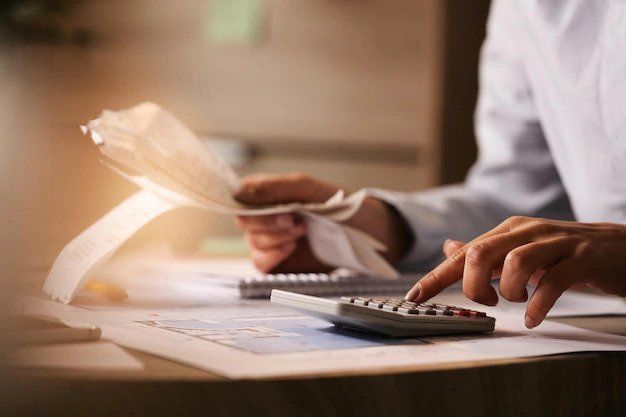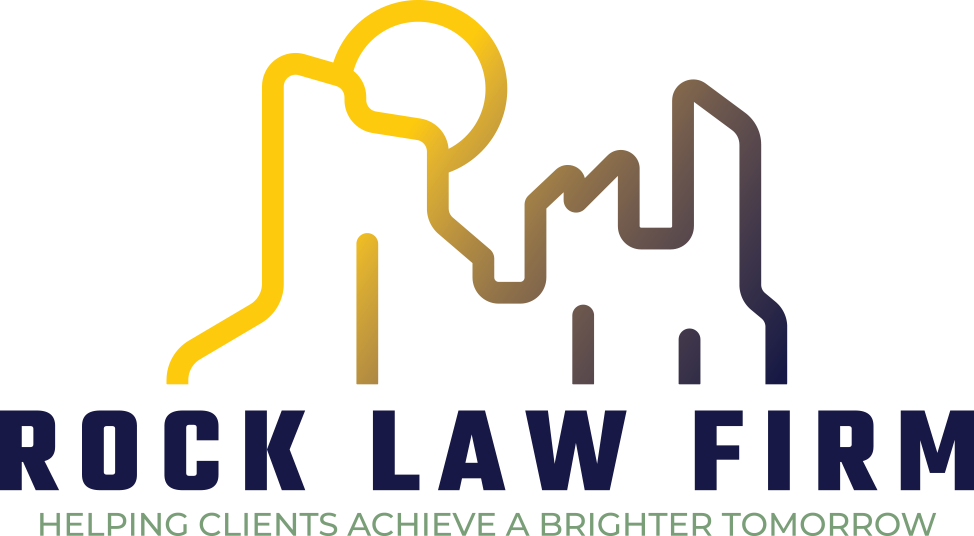
The Pros and Cons of Chapter 7 Bankruptcy
Rock Law Firm
When the daily harassment and calls from creditors become too much, and your daily activities are disrupted, filing for chapter 7 bankruptcy may be the best option. Chapter 7 bankruptcy is an option for businesses and families who are unable to repay loans. This is especially true for families in the United States who live below the poverty line and cannot afford basic necessities.
The goal of bankruptcy is to give honest debtors a fresh start on their credit journey while discharging a few credit card debts. Although it appears to be quite simple, there are a few things you should be aware of. We'll go over the benefits, drawbacks, and eligibility for Chapter 7 bankruptcy.
Declaring Chapter 7 Bankruptcy
It allows creditors to restart their credit journey. When you file for bankruptcy, you give the court permission to protect your assets from repossession, foreclosure, and liquidation by creditors. Creditors are immediately instructed to cease all phone calls, threats, harassment, and lawsuits directed at you while the case is pending. This will assist you in deciding between exempt and nonexempt property. Exempt or secured assets are excluded when the bankruptcy trustees collect all nonexempt or unsecured assets for liquidation.
These assets vary depending on the debtor's interests, but they all consist of personal assets such as a house, a car, and personal belongings. Debtors are required to submit financial documents when filing for bankruptcy. These documents will assist the trustee in determining whether to grant debtors bankruptcy. The following documents are required:
Document showing the current income and expenditure.
Document showing contracts executed and unexpired leases.
Document disclosing debtors' assets and liabilities.
Debtors' statement of financial affairs.
Debtors' recent tax return.
In addition, debtors must be willing to carry out the court's orders to be eligible for chapter 7 bankruptcy, or the case will be dismissed.
Eligibility for Chapter 7 Bankruptcy
Except for a few exceptions, almost any individual or business can file for bankruptcy, though partnership businesses cannot. Among the exceptions are the following:
#1. High-Income Earners
Businesses and people making more money than the median are exempt from filing for bankruptcy. You can find this out by comparing your average monthly income to the median income for families in your state with the same average size.
Your current income will be determined by your income over the past six months. If you have enough money left over to pay off your unsecured debts after calculating your disposable income, you won't be allowed to file for bankruptcy.
#2. Dismissed Bankruptcy Charge
You can't get chapter 7 bankruptcy if you have experienced a dismissal charge over the last six years for the following reasons.
The court dismissed your bankruptcy case due to negligence, fraudulent activities, and the dismissal you requested due to loan relief by your creditor. These restrictions are in place for the next 180 days after dismissal.
The court discovered fraudulent activity toward the creditor or an understated or undisclosed asset, so you can have them after the case is settled.
The court found the business is an incorporated business or limited liability company.
The Pros of Chapter 7 Bankruptcy
When you've filed for bankruptcy discharge, you have just a few days to be out of debt rather than digging into more debt. Here are some reasons you should consider filing once you're eligible.
#1. It Removes Pressure
When you file for bankruptcy to discharge personal loans, credit card debt, medical bills, and unsecured debt, you get immediate relief from your creditors. Creditors are prompted to stop calling and writing to you about paying off your debts, allowing you to start over.
#2. It Exempts Some Assets
Chapter 7 bankruptcy allows you to exempt some personal assets and possessions, in contrast to other bankruptcy options that require you to liquidate your assets. Your home, vehicle, and personal items, such as jewelry, may all be considered exempt assets. To pay the creditors, the nonexempt assets are sold. If you have a mortgage that you are paying for, you can keep the car or house and pay it off later.
Although declaring bankruptcy may seem expensive, weigh the advantages. Your debts will be forgiven within two to three months of filing, giving you immediate peace of mind. Additionally, chapter 7 bankruptcy gives you more time to get your financial situation in order after a foreclosure or repossession.
The Cons of Chapter 7 Bankruptcy
Filing for Chapter 7 bankruptcy might be the best option for you, but you should know that it also has its downsides.
#1. It Hurt Your Credit Score
Although chapter 7 bankruptcy gives you a fresh start, it also has a negative impact on your credit card debt because you might not be approved for a loan for the next ten years. From that point forward, start repairing your credit and making financial plans; over time, your credit score will rise. Also, not all loans are exempt from repayment. Student loans, tax debts, and child support debt can't be discharged.
#2. It Doesn't Cover Co-Signers and Guarantors
Co-signers' and guarantors' debts are not covered by chapter 7 bankruptcy filings. Only the person filing for Chapter 7 bankruptcy is protected from debt.
The fact that you typically lose the majority of your assets to creditors through liquidation is another drawback of declaring bankruptcy. Additionally, your debts are covered up to a certain amount; any remaining debt is paid to the court.
Additionally, you are only permitted to file a case once every eight years; additional issues can be resolved through Chapter 13 bankruptcy. Another drawback of chapter 7 bankruptcy is that it requires you to appear in court and answer questions from creditors, which is a difficult and embarrassing legal process.
How the Rock Law Firm Can Help You
Perhaps, if you've been neck deep in personal liability, secured debts, personal loans, or credit card debts and need debt relief, seek a bankruptcy law firm. At Rock Law Firm, we are prolific in helping our clients pursue chapter 7 bankruptcy to get out of debt. We liaise on the client's behalf before creditors and the bankruptcy court, Contact our bankruptcy attorney today.
